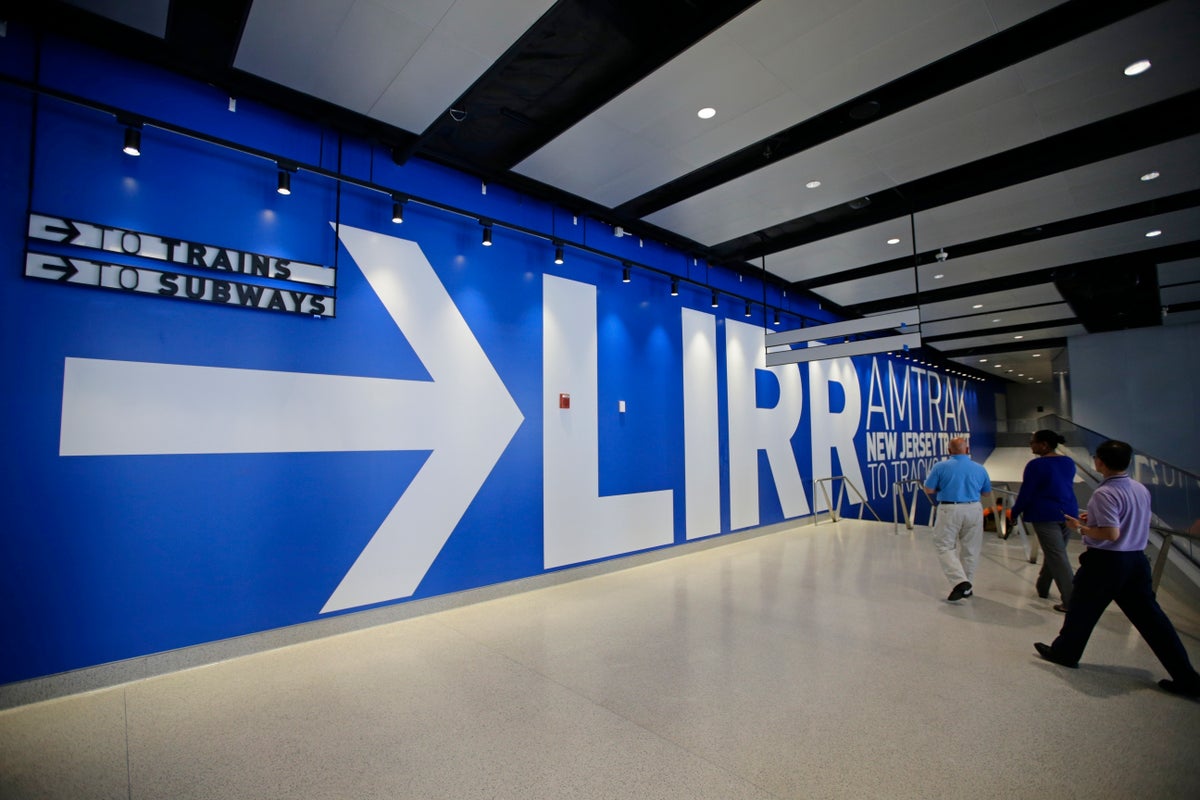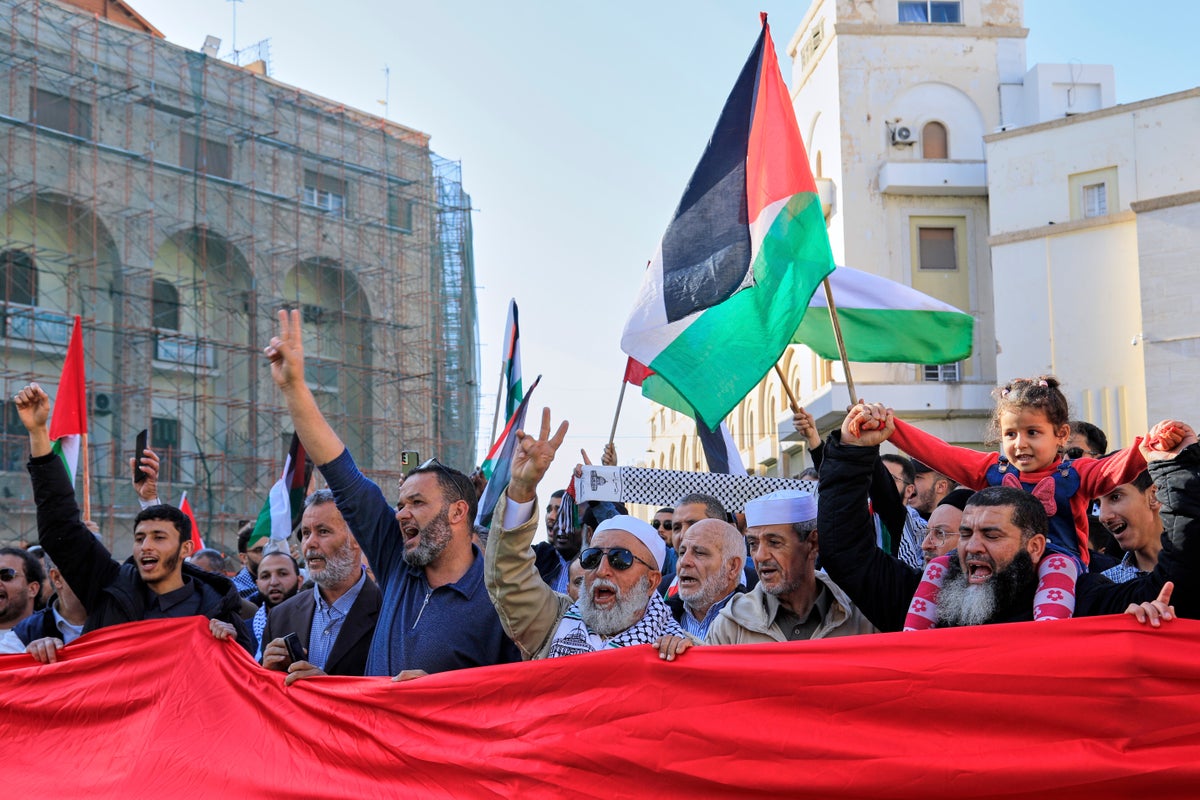President Donald Trump has not been particularly kind to the small African nation of Lesotho. His administration’s dismantling of the United States Agency for International Development hit the nation of about 2.3 million people hard, by cutting millions of dollars of funding for public health and other programs. In March, he ridiculed the country during his address to Congress, alleging that the United States had spent $8 million “to promote LGBTQI+” in a country “nobody has ever heard of.” And then last week, he dropped the hammer: A 50-percent tariff on all imports from the country—which was tied for the highest in the world, before Trump paused the implementation on Wednesday afternoon.
In announcing the 90-day reprieve—which will keep 10-percent tariffs on much of the world and a 125-percent surcharge on Chinese imports—Trump boasted that “more than 75 countries” had expressed their willingness to negotiate with the White House. Lesotho, at least, was one of them. According to a State Department memo obtained by Mother Jones, high-ranking Lesotho officials scrambled to cut a deal in the days following Trump’s Rose Garden tariff announcement. The memo, sent out Monday from the US Embassy in Maseru, detailed the government’s efforts to stay on the good side of an American president who has inexplicably put the country in its crosshairs.
But in addition to a pledge to buy more goods from the United States, these officials sought to demonstrate their friendliness with the United States in other ways: They offered assurances that the country would soon grant Elon Musk’s Starlink an operating license—and they signaled the government’s openness to helping with Trump’s mass-deportation efforts.
The memo, titled “Lesotho Urgently Seeks Deal to Reduce Tariffs,” stemmed from a series of meetings between the American chargé d’affaires in Maseru, and top Lesotho government ministers, in the aftermath of Trump’s “Liberation Day” announcement. The effects of the tariff could be “significant,” in the memo’s assessment—driving up unemployment in a country where 39 percent of young people are jobless and devastating the country’s garment industry. (That sector, the memo noted, was a “success story” of the African Growth and Opportunity Act, a free-trade agreement between the United States and a number of African nations that is up for reauthorization this year.) It underscored the challenges of tiny Lesotho, which exports about $237.3 million worth of goods to the US each year but has a per-capita GDP of about $1,000, attempting to ever achieve import-export parity with the United States:
“The Ministers emphasized that as a least developed country, Lesotho’s ability to increase imports from the United States were limited, but they pledged to ‘do their best’ to address the trade deficit.”
If Lesotho does not have a lot of buying power, it does have other things the Trump administration might want. According to the memo, the government officials discussed the possibility of importing wheat from the US instead of South Africa (which surrounds Lesotho on all sides), and of purchasing medical equipment and military supplies. And they sought to “demonstrate their commitment to the bilateral relationship,” in the State Department diplomat’s words, in other ways.
On a list of American companies the country was eager to do business with, one name stood out. Musk’s satellite telecommunications company, Starlink, has been trying to break into the market in Lesotho for a while—Musk even met with prime minister Sam Matekane in New York last year. While Musk has been stymied by regulators in some other African countries—most notably South Africa—the Lesotho government had good news on that front.
“To demonstrate opportunities for U.S. businesses, the [government] is finalizing a licensing agreement for Starlink, with the goal of having a signed agreement by April 15,” the memo stated. “Deputy Prime Minister Nthomeng Majara and others stated the deal is essentially complete.” (SpaceX, Starlink’s parent company, did not respond to a request for comment.)
The memo also played up Lesotho’s willingness to help out on military matters. In addition to previous partnerships in the region, “an advisor close to PM Matekane” told the chargé that his government would consider sending troops to the war-torn Democratic Republic of the Congo “to support peacekeeping operations there, particularly as the United States seeks access to minerals,” according to the memo.
“In a further demonstration of their commitment to the United States,” it continued, “the Foreign Minister said Lesotho would explore accepting third country national…deportees from the United States”—that is, foreign nationals deported by the United States who aren’t accepted by their home countries. The Wall Street Journal reported last week that at least six other countries were in talks with the Trump administration about accepting deportees, including nearby Eswatini.
A State Department spokesperson said the department would “not comment on private diplomatic conversations.” Neither the White House nor Matekane’s office responded to a request for a comment.
Lesotho is just one country, albeit one that has borne the brunt of Trump’s policies to an unusual degree. But the diplomatic missive offers a glimpse of the ways Trump’s anti-immigrant crusade have fused with foreign- and economic policy, and underscored the difficulty of disentangling Musk’s vast business empire from the interests of the government he now serves. It also laid bare the stakes, not just for Lesotho, but for the American sphere of influence that these teetering trade deals and canceled development funding were meant to strengthen.
If this is how the United States is going to treat its friends, they might some day prefer the company of other ones. The last section of the memo was titled simply: “Chinese Embassy Seeks to Take Advantage.”















